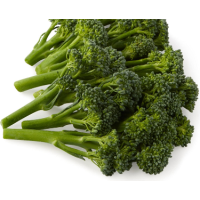
FRESH TAMARIND-UKWAJU PACK
Overview
Nutritional Value of Tamarind a.k.a UkwajuTamarind also know as mkwaju in kenya is a fruit with many nutritional components; includes a significant level of vitamin C, E, and B, calcium, iron, phosphorus, potassium, manganese, and dietary fiber. Ther...- BOOKS & STATIONERY
- CAR CARE
- DEALS
- ELECTRONICS & ACCESSORIES
- GIFTS
- HARDWARE
- HOME APPLIANCES
- MOTHER & CHILD
- MUNIFICENCE
-
PHARMACY
- Ear / Nose / Eye / Throat
- HEALTH & WELLNESS
- PHYSIOTHERAPY & ACCESSORIES
-
PRESCRIPTION
- Anti -acid/Reflux/Peptic ulcer
- Anti allergies
- Anti amoeba/ Anti protozoa/ Food poisoning
- Anti Colic
- Anti Diarrhoea
- Antibiotics
- Anticholinesterase
- Antifungal
- Antispasmodic
- Asthmatic drugs
- Blood glucose
- Blood pressure machine
- Blood Suppliment
- Blood Thinner/pain
- Cancer -chemo
- Contraceptives
- Cracked Feet
- Dewormers
- Flu, Cold and Cough
- Hair and Nail growth
- HIV
- Hypertensive
- Injectables
- Laxative
- Liver Supplement
- Mouth Ulcers
- Nausea /vomiting
- Pain Killer/Anti inflammation drugs
- Pregnancy
- Probiotic
- Supplement
- Surgicals
- Urine Alkalizer
- Vertigo
- Sexual Health & Wellness
- OVER THE COUNTER
- PHARMACY>Antimalaria
- WHOLESALE PRODUCTS
- GROCERY
- DRINKS
- HOME CARE
- PET CARE
- MEATS
- BEAUTY & GROOMING
Your shopping cart is empty!
Nutritional Value of Tamarind a.k.a Ukwaju
Tamarind also know as mkwaju in kenya is a fruit with many nutritional components; includes a significant level of vitamin C, E, and B, calcium, iron, phosphorus, potassium, manganese, and dietary fiber. There are also a number of organic compounds that make tamarind a powerful antioxidant and anti-inflammatory agent.
1. Aids In Digestion
Tamarind is considered a natural laxative, it contains fiber which adds bulk to the stool making it move through the smooth muscles of the intestinal tract easily. Tamarind is also a bilious substance, meaning that it stimulates the activity of bile, which can help dissolve food faster, and the fiber stimulates gastric juices to speed up digestion. All of this together means that things run through your digestive tract faster, making it a powerful laxative if you are suffering from chronic constipation. Oddly enough, the fiber can also reduce loose stools, and studies have shown tamarind to be
effective against chronic diarrhea as well.
2. Heart Health
The fiber content in tamarind certainly has something to do with the reduction in cholesterol, since it is known to scrap excess LDL cholesterol from the veins and arteries. The potassium in tamarind may be responsible for a reduction in blood pressure since it is known as a vasodilator that reduces the stress on the cardiovascular system. Vitamin C is an antioxidant neutralizes free radicals, the by-products of cellular metabolism that have been linked to heart diseases and a number of other health conditions.
3. Aids in Weight Loss
Tamarind contains hydroxycitric acid (HCA) which is conncted to weight loss because it has been shown to inhibit an enzyme in the body that specifically helps to store fat. Furthermore, tamarind has been known to suppress the appetite by increasing the neurotransmitter serotonin.
4. Regulates Blood Sugar Level
Tamarind inhibits the enzyme alpha-amylase, which mainly stops carbohydrates from being absorbed. A carbohydrate-heavy diet can increase the chances of uncontrolled glucose and insulin levels, which is the biggest problem for people suffering from diabetes. Tamarind can help to monitor and control these fluctuations.
5. Boosts Immunity
Tamarind has high levels of vitamin C and other antioxidants which helps boost the immune system and ensure long-term health, keeping away from microbial and fungal infections. It also has antiseptic and antimicrobial properties.
6. Anti-inflammatory Properties
Tamarind has anti-inflammatory abilities which helps reduce joint pain and inflammation, arthritis, rheumatic conditions, and gout. It also reduces eye irritation; one of the most common forms of which is conjunctivitis, also known as pink eye. Tamarind has shown a definite soothing and anti-inflammatory ability and is, therefore, used in many herbal remedies for inflammation.
7. Prevents Anemia
Tamarind is a very good source of iron and a single serving can provide more than 10% of your daily requirement. A healthy supply of iron in the body guarantees proper red blood cell count in the body, which can ensure appropriate oxygenation of different muscles and organs to function properly. Also, iron deficiency results in anemia, which is characterized by weakness, fatigue, headaches, cognitive disorders, and stomach issues.
8. Improves Nerve Function
Tamarind has thiamine which is responsible for improving nerve function, as well as muscle development, which can help you remain active, maintain your reflexes, and stay strong.
9. Treats Allergies
Tamarind has antihistamine properties and this can help fight colds and flus which are usually caused by allergies or viral infections. They also help prevent asthma attacks.
10. Skin Care
Tamarind helps reverse sun damage and can also be ground to be used as an exfoliator. The fruit contains Alpha hydroxyl, which is what helps prevent spots and acne.
11. Improves Circulation
Tamarind is a very good source of iron and a single serving can provide more than 10% of your daily requirement. A healthy supply of iron in the body guarantees proper red blood cell count in the body, which can ensure appropriate oxygenation of different muscles and organs to function properly. Also, iron deficiency results in anemia, which is characterized by weakness, fatigue, headaches, cognitive disorders, and stomach issues. So, eat plenty of tamarinds to keep anemia at bay!
12. Manages Diabetes
Along with its ability to stop weight gain, it also inhibits the enzyme alpha-amylase, which mainly stops carbohydrates from being absorbed. A carbohydrate-heavy diet can increase the chances of uncontrolled glucose and insulin levels, which is the biggest problem for people suffering from diabetes. Tamarind can help to monitor and control these fluctuations.
13. Beat The Heat
You are prone to suffer a heat stroke if you live in region that is particularly hot, and if you aren’t hydrated well. Tamarind juice made with a little cumin can prevent heat-related issues and cool your system.
14. Ulcer Prevention
Only a healthy digestive system will help absorb nutrients to their full potential. Ulcers can be prevented by the regular use of tamarinds. Tamarind seed extract contains compounds that inhibit the occurrence of ulcers.
15. May Help Prevent Cancer
Cancer is caused due to the growth of cells that thrive on free radicals. As a powerhouse of antioxidants tamarinds will promote antioxidants in the body, causing cancerous cells to be eliminated.
16. Antihistaminic
Tamarind also helps fight colds and flu. These are usually caused by allergies or viral infections. However, tamarind has antihistaminic properties that help prevent asthma attacks and other types of colds and flu.


-200x200.png)




